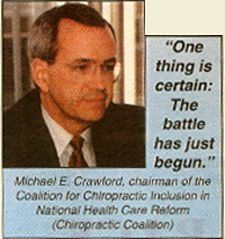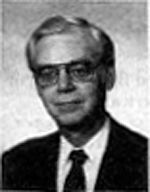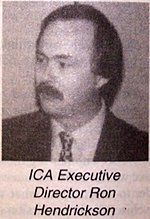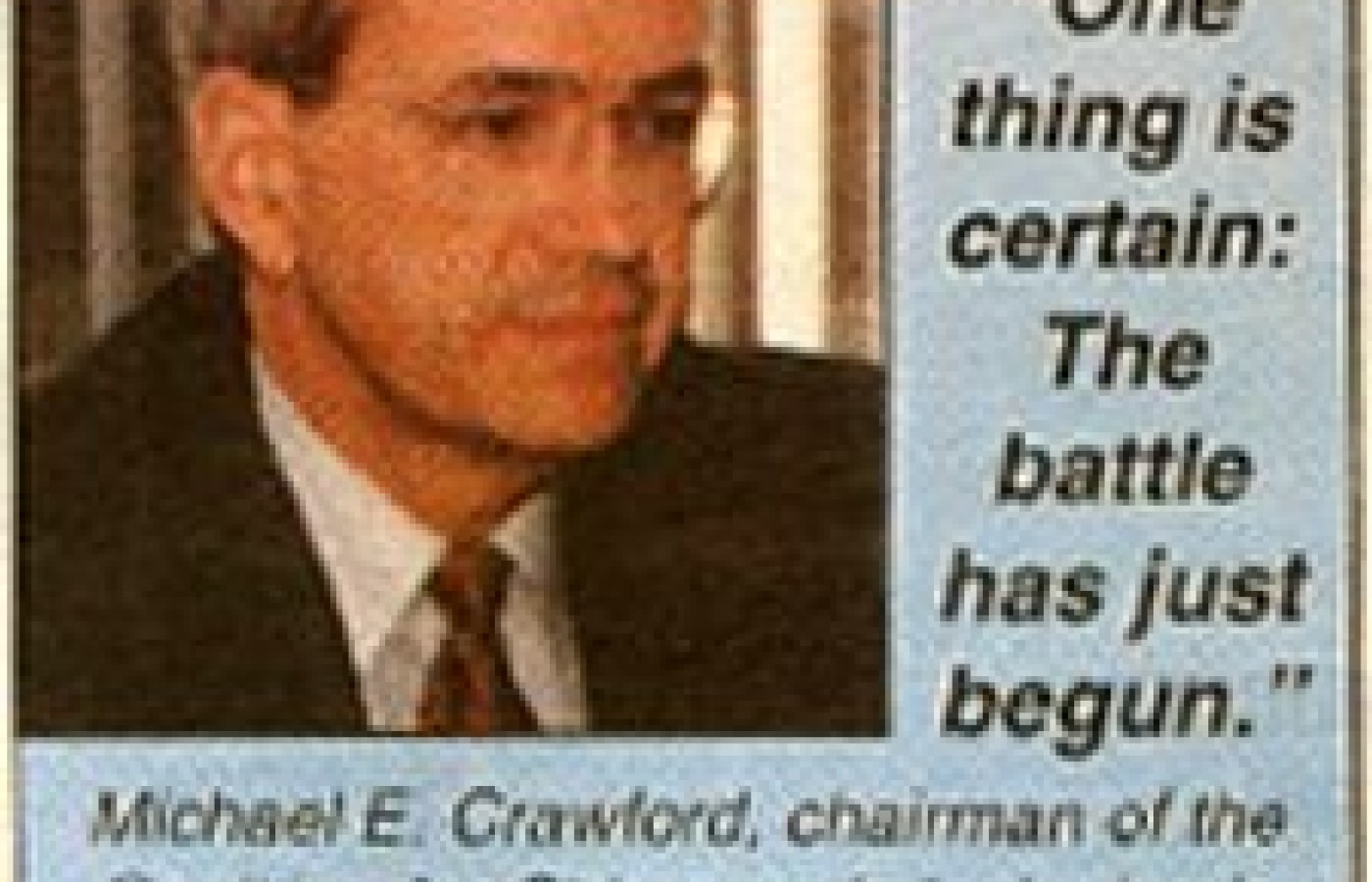It’s a new year and many chiropractors are evaluating what will enhance their respective practices, particularly as it relates to their bottom line. One of the most common questions I get is: “Do I need to be credentialed to bill insurance, and what are the best plans to join?” It’s a loaded question – but one every DC ponders. Whether you're already in-network or pondering whether to join, here's what you need to know.
President Clinton Dissolves Health Care Task Force

Almost as quickly as it was created, the National Health Care Task has been disbanded. Most of the telephone lines are no longer in service and most of the Task Force members have gone home.
Obviously, this is not the end of national health care reform in the United States, but what will happen next? And how can chiropractors, students, and patients best support the profession as health care reform continues to unfold?
Michael E. Crawford, chairman of the Coalition for Chiropractic Inclusion in National Health Care Reform (Chiropractic Coalition) had this to say:
"President Clinton's Health Care Task Force may have been dissolved, but the chiropractic profession cannot afford to relax. We still expect that a sweeping reform proposal will be announced, probably between July and September. When that happens, we'll need to act quickly. We'll have to analyze the proposal, see if and where chiropractic fits in, then come up with strategies and actions to carry the fight to Capitol Hill."As long as we stay alert, I think the profession is reasonably well-positioned to act. I want to commend all of the chiropractic colleges, the various associations, and other groups who are part of the Coalition for Chiropractic Inclusion in National Health Care Reform.
"Literally thousands of phone calls, letters, and faxes were sent to Washington, D.C., by chiropractic students, patients, faculty, and practitioners. Coupled with an aggressive radio, television, and newspaper ad campaign, chiropractic certainly made an impact. The trouble is, we have no idea how significant the impact has been or how things may have changed by the time the reform proposal is announced.
"We have to wait, but we have to stay on the watch. One thing is certain: The battle has just begun."
Kerwin Winkler, DC, chairman the American Chiropractic Association's Board of Governors offered these remarks:

"At one time there was a very diverse group of over 500 people working on the Task Force. Most of this group has now been sent home, and that comes as no great surprise. They succeeded in churning out reams of option papers and policy recommendations, but as a practical matter their work is largely finished. The tough decisions now have to be made at the very top -- by the president and his senior advisers. I'm talking about the tough decisions like how they're going to pay for his reform plan and how comprehensive their benefits package is going to be. They have to choose from a short list of less than ideal and somewhat conflicting options. A final decision on the scope of the benefits package, for instance, could either reduce or expand their financing options, depending on just how the expense of the package is going to be on a per capita basis."The cost of the benefits package remains a gargantuan issue. Our concern is that our (chiropractic) services may still be viewed as an add-on expense, rather than as a substitute for more expensive and less effective forms of treatment, when the cost of the benefits package is calculated. Despite some earlier reasonably favorable assurances coming out of some senior quarters within the Task Force apparatus, we have no solid evidence as to how we are precisely viewed by the administration at this point. As the president wrestles with putting the final touches on his plan, we continue to believe everything is still up for grabs insofar as fair and adequate inclusion of chiropractic is concerned.
"When we look at the whole process, now that most of the Task Force is gone, we have to keep our eye on who the key internal players are going to be from here on out. Without question, OMB (Office of Management and Budget) Chairman Leon Panetta and his senior staff are going to play a more influential role in the process. They, more than any other power center within the administration, are concerned about budget implications and making the numbers work. Although it has not been publicly reported, we know from inside sources that OMB is already working on a `budget neutral' health reform plan they can surface up, if the more expensive Health Task Force plans begin to head south, before or after they hit Capitol Hill.
"Even though the job of the Task Force is complete, our mission remains the same. We must continue to marshal the profession's forces in every way possible in order that we can continue to wage an effective and sustained grassroots program, which seeks to ensure a growing and productive role for the chiropractic profession under national health reform."
The International Chiropractors Association's (ICA's) Executive Director Ron Hendrickson commented:

"The unprecedented organization of the 500-plus member White House Health Care Task Force, incorporating many views by President Clinton, was an historic and positive step. The work undertaken by this group will provide data and options in federal health policy for many years. No one at ICA has seen the final product of this Task Force. We have appreciated the openness with which ICA and other participants in the Chiropractic Coalition were received, and feel that chiropractic had ample opportunity to provide information and advice. The critical factor will be the degree to which this information was understood and chiropractic's advice taken on the matter of citizen access to chiropractic services.
"The task force has disbanded, but the mission will not be complete until an official administration proposal is published. We understand that there is still a great deal of debate and discussion going on within the political structure in the Clinton White House regarding the final proposal, and it appears that President Clinton has yet to make many of the central decisions regarding the health care plan. ICA is continuing its efforts to educate and inform those still working on these issues of the economic and political wisdom of meaningful inclusion of chiropractic in the administration's plan.
"It is important to remember that the Task Force and the president can only propose a strategy and plan for national health care reform. It is up to the Congress to pass the legislation that will make these proposals the law of the land. We believe the legislative struggle will be long, drawn out, at times bitter, and will very likely change most or all of the president's initial proposals. ICA is ready to be an important player in this legislative battle. The dissolution of the Task Force is barely the end of round one."

Every DC, student, and patient is being asked to remain alert and ready to act as the political process continues.



